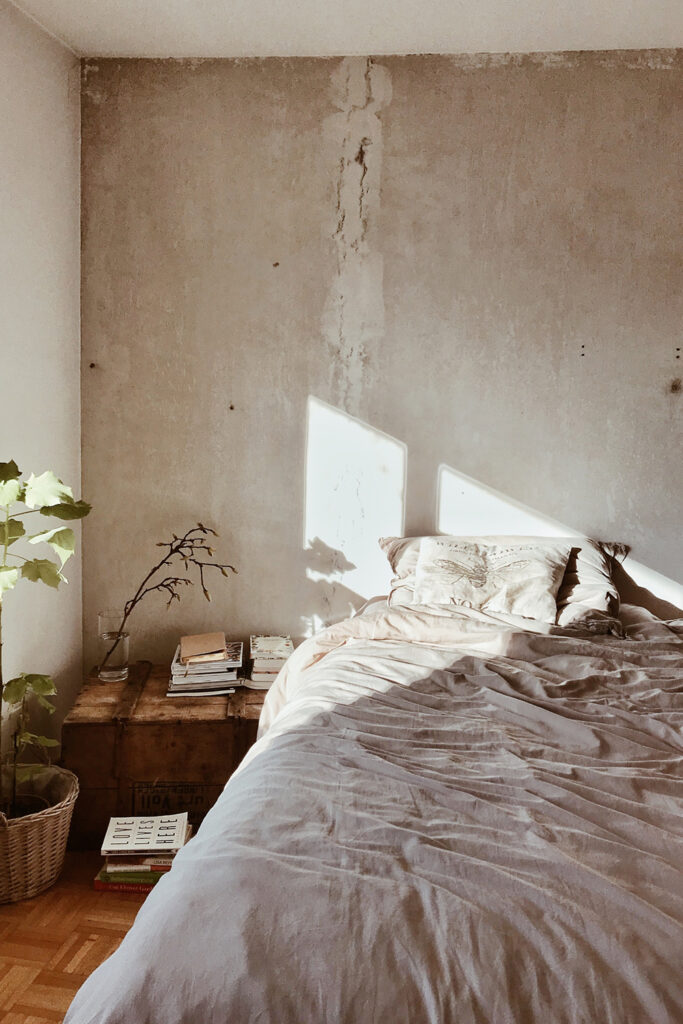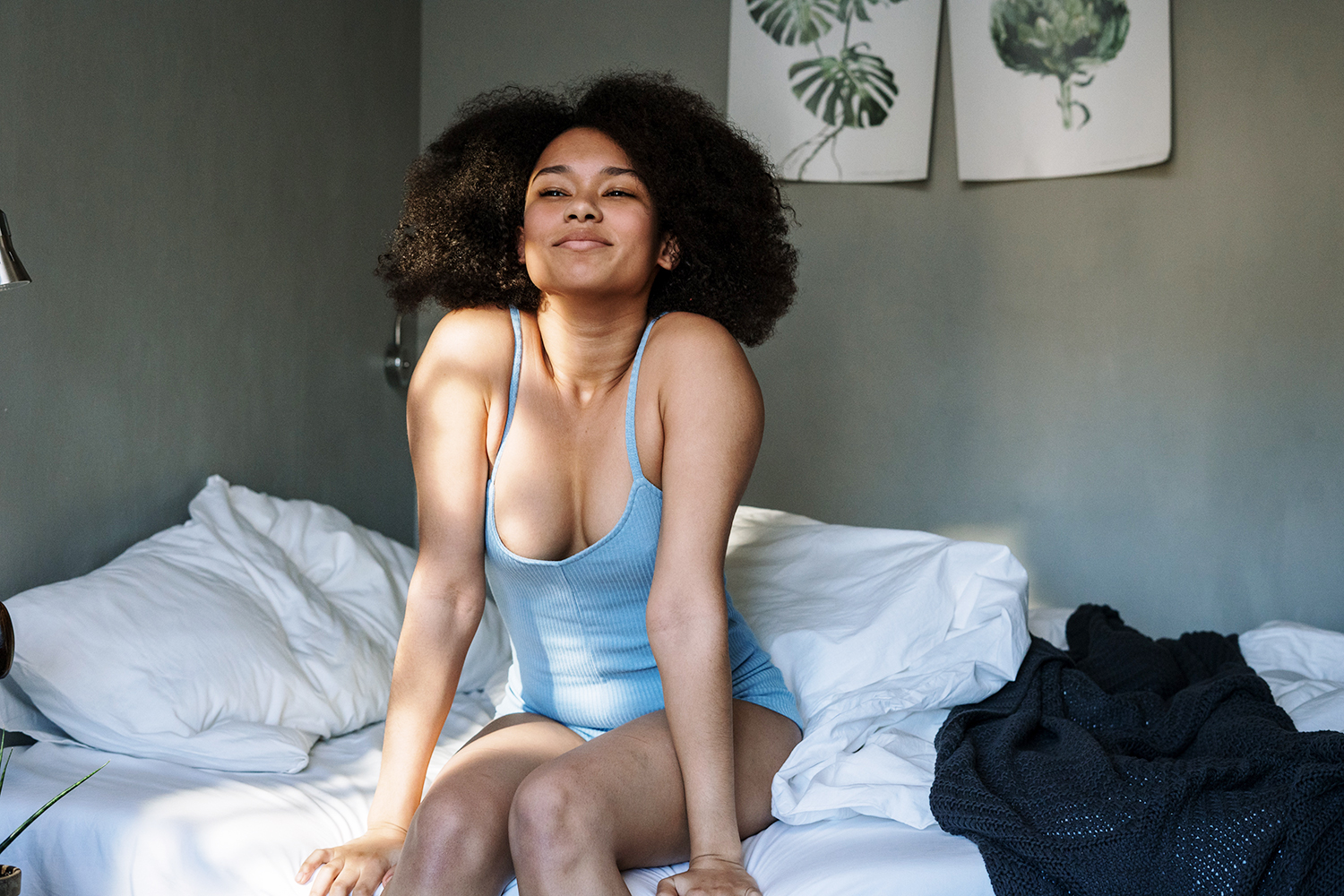Especially in moments of crisis like the one we are living thanks to Coronavirus, a good night sleep can really help you deal with anxiety and live a better life. But what can make us a better sleeper? Pretty Slow’s Alessia Armenise argues that a good night’s sleep starts from your outfit.
“Are you actually wearing ‘real’ pyjamas right now?”
After a sleepover, this is the first thing a friend told me when I got out of bed in all my coordinated pyjamas glory. “You must be the only person I know that doesn’t wear an old t-shirt to bed”, she continued. Considering she already thinks I live my life on a military schedule, I am sure my night attire consolidated this idea in her mind forever.
I, of course, don’t see any relation between my life and the one of a sergeant just as much as I don’t understand why the power of good pyjamas is still underestimated.
Your night-time routine starts from the outfit
In a society that tells us that we should have a 12 steps beauty routine and that waking up at 5am is really the only way to succeed, thinking that we should only wear old, scruffy clothes because ‘we are just going to bed’ – unless we are not going to bed with a new partner, of course – is silly.
Why would you need a new love interest to treat yourself to something that makes you feel sexy and empowered? That seems like a patriarchal assumption that shouldn’t occupy space in our minds in 2020.
If you’ve been struggling to sleep and sleep has become a bit of a dread, changing your nightwear might even break the pattern of feeling anxious around bedtime.
Dr Nerina Ramlakhan
I am not going to pretend I have never worn an old tshirt to bed, of course I did – but I have ditched the habit a few years ago and I won’t go back. But do I just like fancy things or am I actually onto something?
Psychologist and sleep therapist Dr Nerina Ramlakhan thinks I am right:
“What we wear to bed really can affect your sleep particularly if you’re a sensitive sleeper and want to feel the ‘protection’ of layers around you. What we wear at night is so unique to who we are as a human being and what makes us feel that inner sense of safety that is vital to being able to get to sleep with ease and sleep deeply. So while some people might prefer their birthday suit others will want the sensory experience of being completely covered up.”
Your sleep, your style
I am on the side of modest fashion when it comes to going to bed but a friend of mine, Millie*, prefers to get rid of any type of clothing at night: “I can’t sleep with anything on me, it stresses me out. But at the same time, I can’t sleep without an eye mask.”
For Dr Ramlakhan, this may depend on your relationship with heat and cold and self-awareness is the key issue. In fact, research shows that 32% of people sleep better in a cooler room at night. This being particularly relevant for women going through menopause and perimenopause. This also includes certain phases of the menstrual cycle, when you’re more likely to overheat. Jasmine Lee, Sleep Researcher at Eachnight, adds that “cotton is the best material to sleep in because it’s soft, comfortable and lets your body still breathe.” “It also doesn’t weigh your body down so is easy to move about during the night.” Fun fact it’s also been found that sleeping with socks helps you fall asleep faster – do you still think that your pyjamas don’t affect your sleep?

Pyjamas are definitely not the only thing that affects your sleep and I am a big advocate of a lengthy and relaxing night routine. “Night time rituals really help you to let go of the day, the to-do lists, the worries and stress and send a message to the nervous system to settle and smooth out so that you can sleep with greater ease” says Dr Ramlakhan, “while the most unhelpful night time rituals include checking your inbox and watching the news – they definitely don’t create a feeling of inner safety and calm.”
A little thing might be a big help
And in these last few months, while everybody is worrying about coronavirus and its effect on our health and economy, a good night’s sleep can really change your life. In this time of uncertainty and fear, I have been adding an additional step to my bed-time routine: before bed, I make myself an infusion and settle on the sofa with a light-hearted book, wrapped in a weighted blanket.
Weighted-blankets are, in fact, proven to help with insomnia and anxiety. I was skeptical at first but, after trying it for a few days, I can really feel my body relax under the light weight of the blanket. In a moment when all types of physical human interaction seem to be unacceptable, even the soft hug of a blanket might really help your psychological state.
* names have been changed to preserve anonymity.


